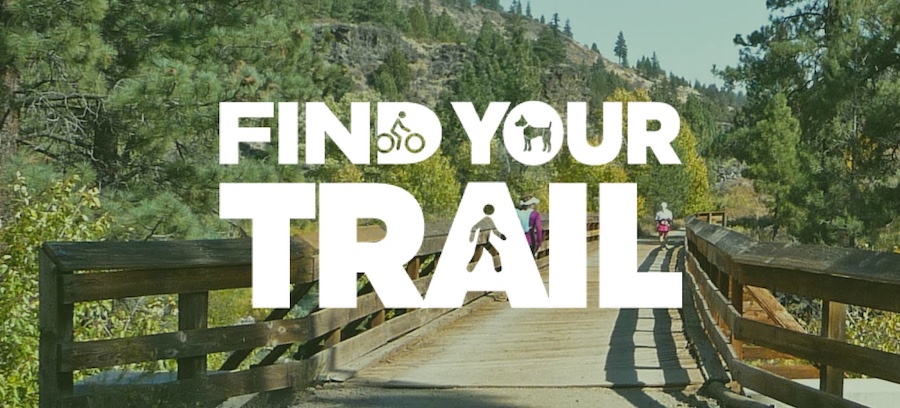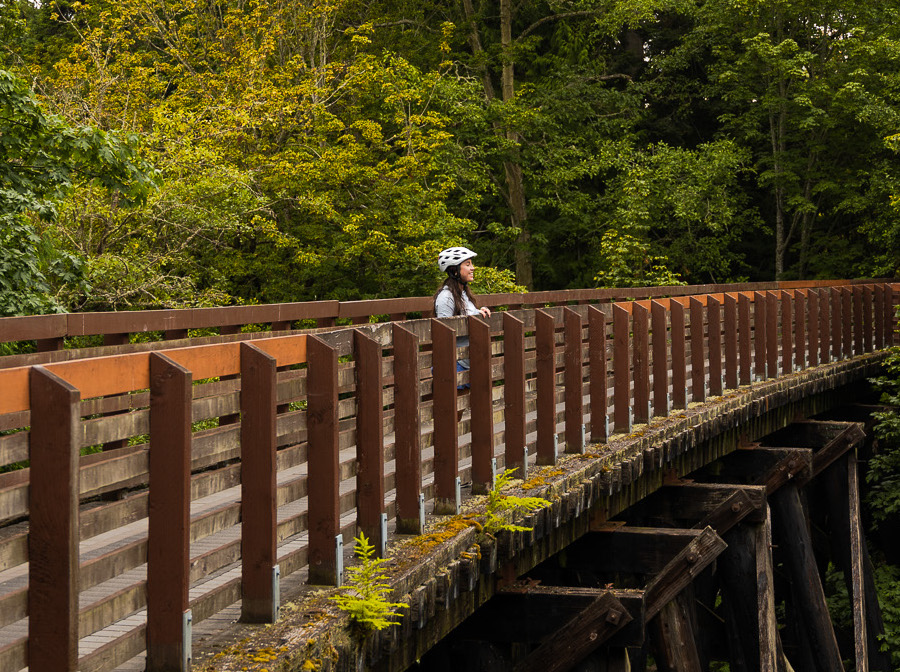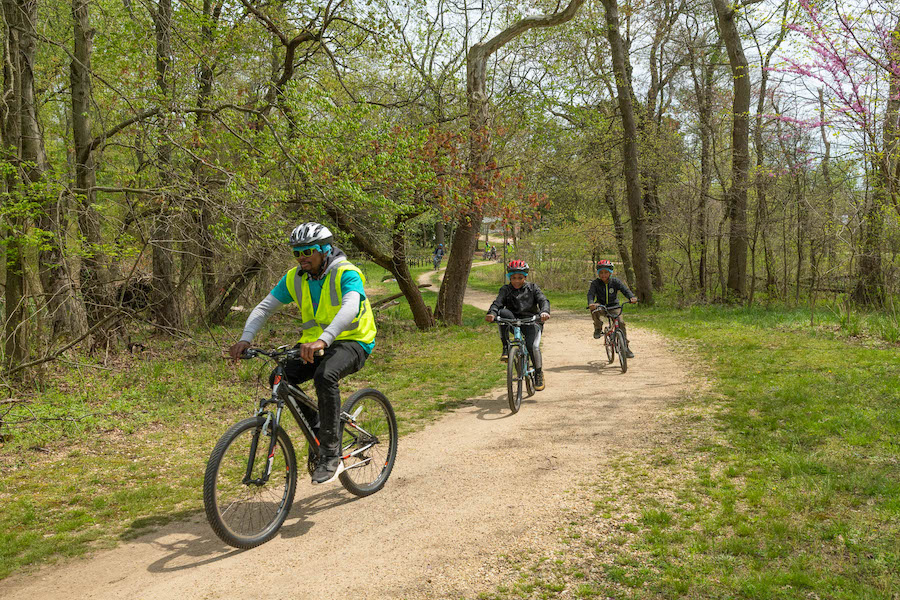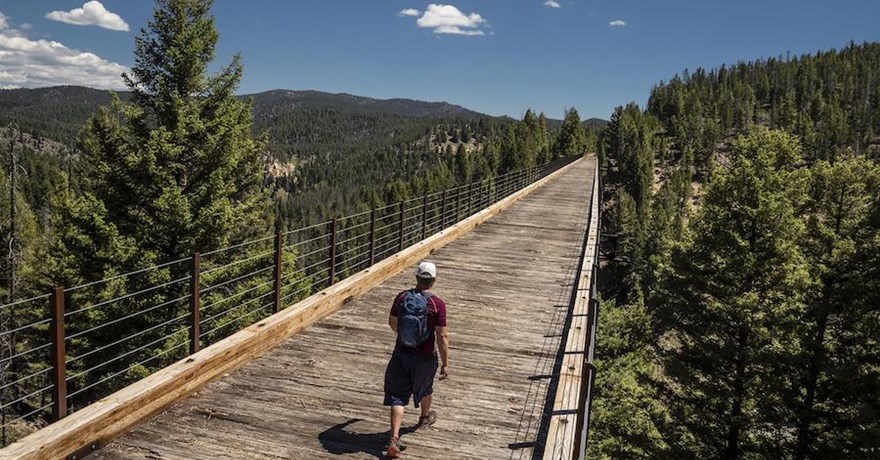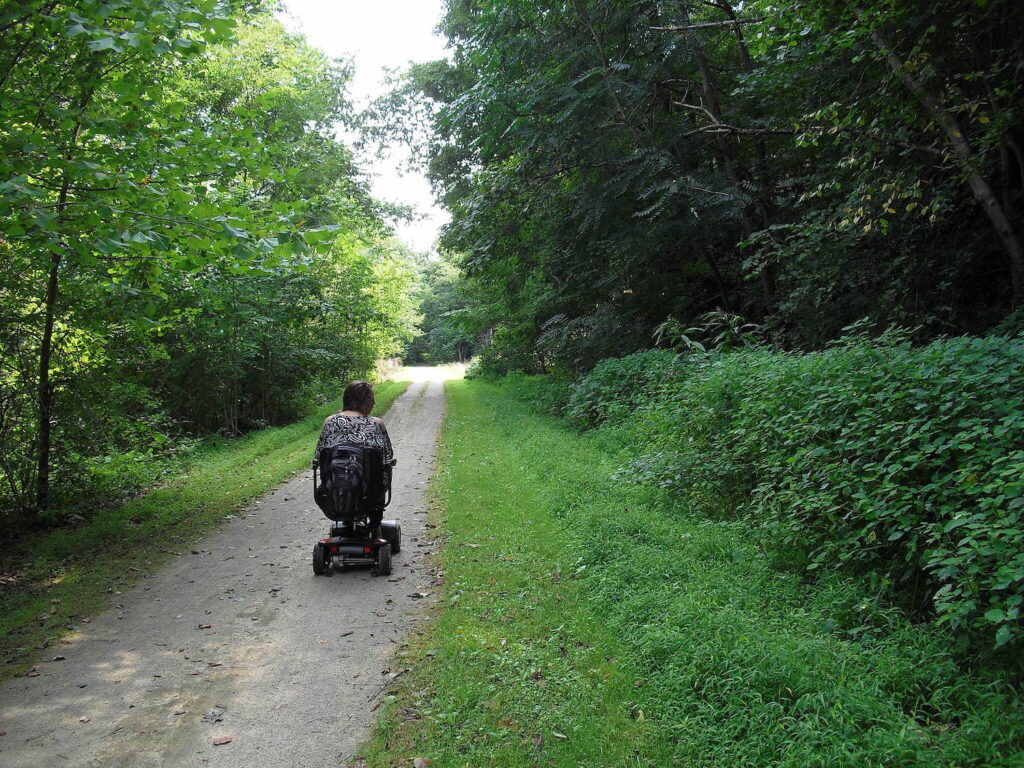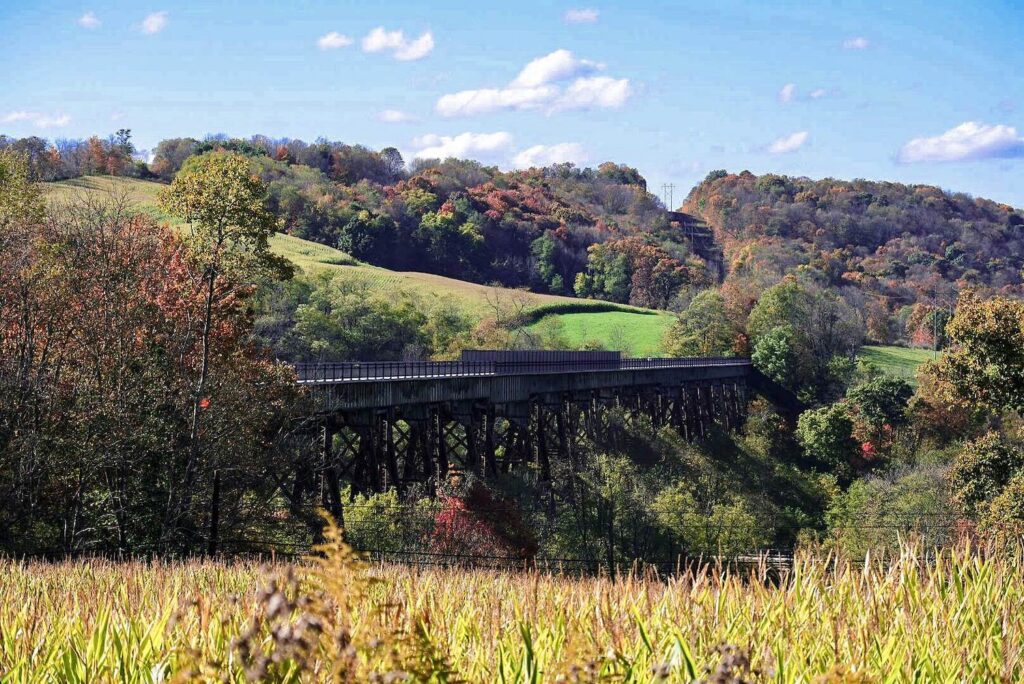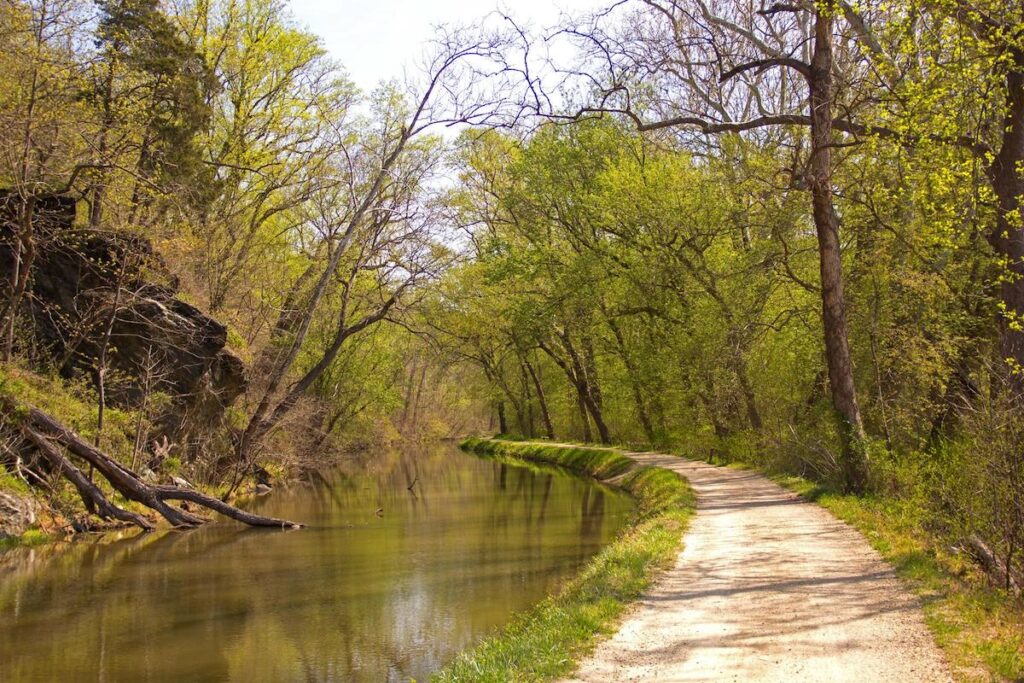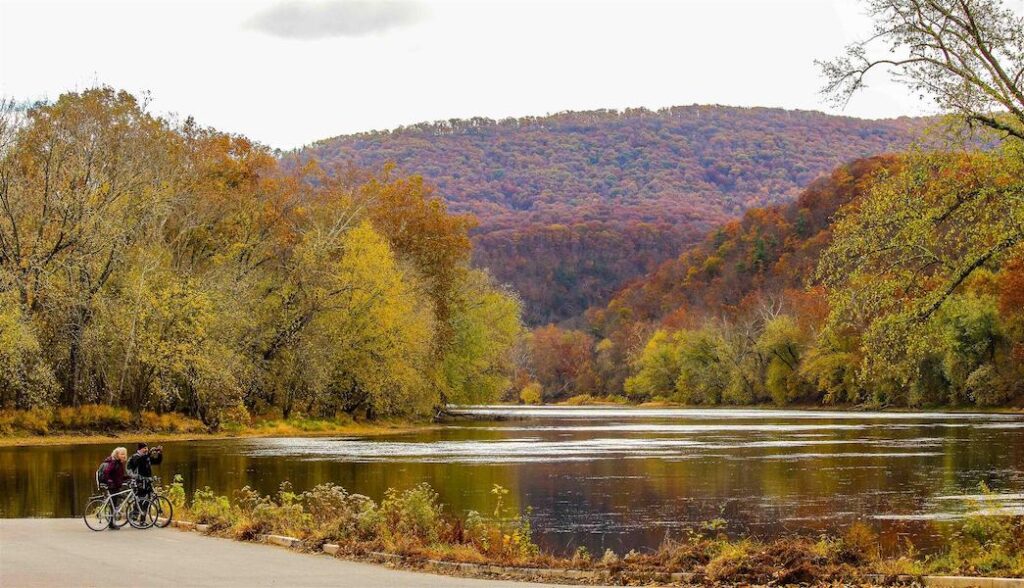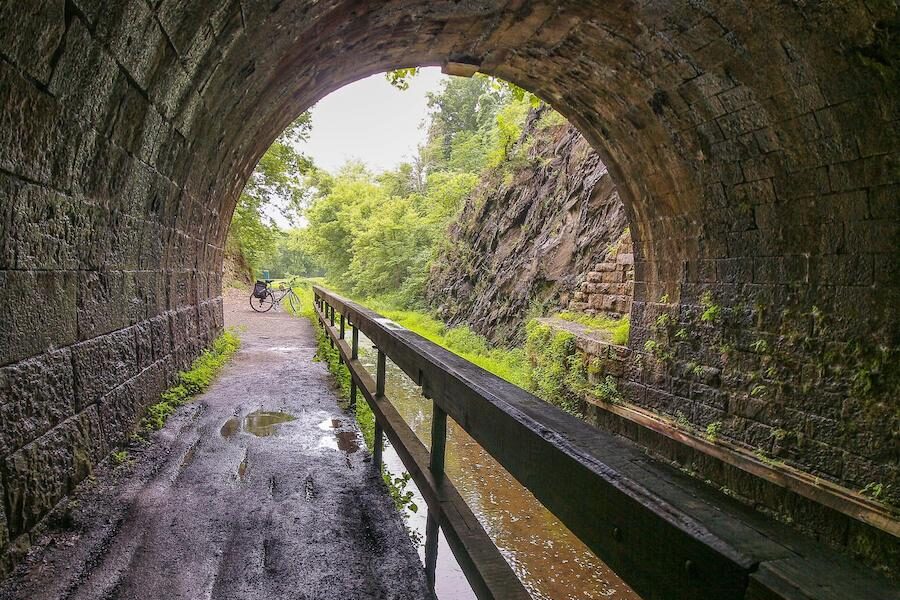Great American Rail-Trail In Maryland
The Great Allegheny Passage (gaptrail.org) at the Eastern Continental Divide in Maryland | Photo by David Ni
A majority of the Great American Rail-Trail host route in Maryland pays homage to the state’s days as a central player in the Canal Era, which peaked in the mid-19th century. Carried by the Chesapeake & Ohio Canal National Historical Park (C&O Canal Towpath) for some 180 miles, the Great American Rail-Trail route through Maryland features hundreds of locks, lock houses and other canal structures that once transported coal, lumber and agricultural products to market and provided opportunities for employment and commerce in the Potomac River Valley.
Winding northwest from Washington, D.C.—the C&O Canal Towpath trail terminates in Cumberland, Maryland, where it meets up seamlessly with the iconic Great Allegheny Passage (gaptrail.org).
The “Great American” Route Through Maryland
The trail route through Washington, D.C., and Maryland is the only section of the Great American Rail-Trail that is currently 100% complete. The route begins at the steps of the U.S. Capitol and picks up at the Capital Crescent Trail in Georgetown, which flows into the towpath of the Chesapeake and Ohio (C&O) Canal National Historical Park. With the C&O stretching from Washington, D.C., to Cumberland, Maryland, the route then meets up with the Great Allegheny Passage (gaptrail.org).
200.8
Total Miles200.8
Existing Miles0
Gap Miles100%
Complete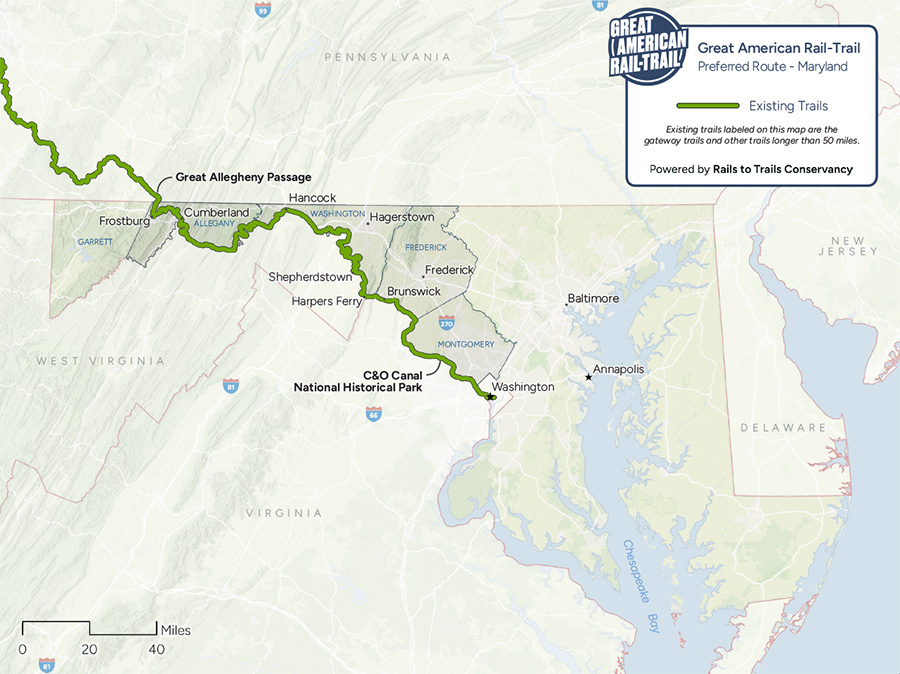
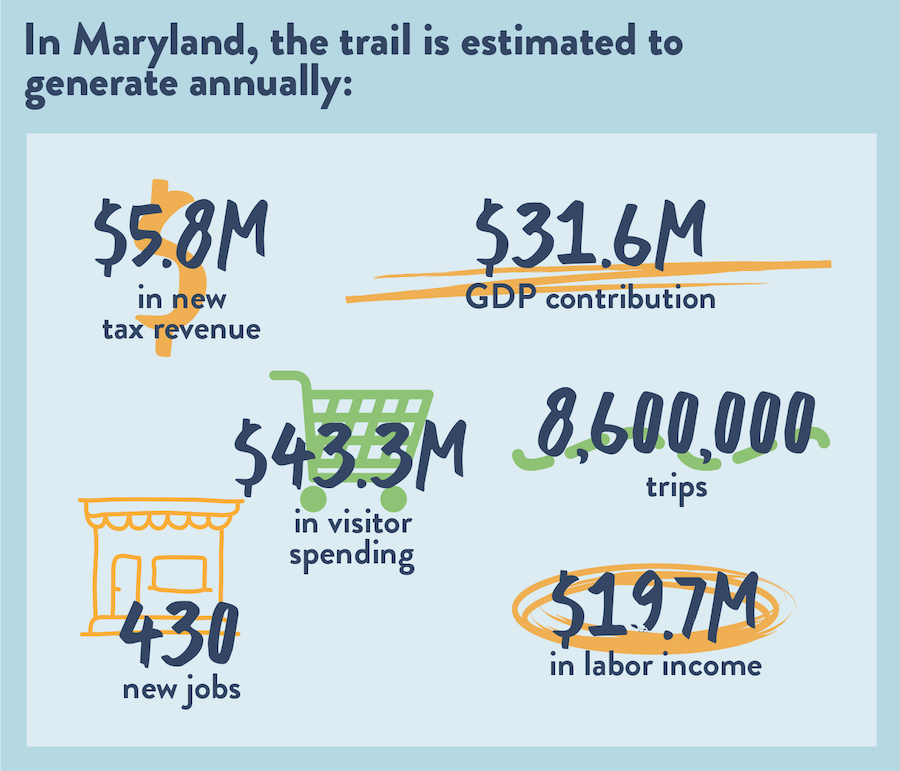
Trails Along the Route
Tap thumbnail to view photo gallery.
Click the links below to view full trail descriptions on TrailLink.com.
Listen To Oral History:
Gateway Trail
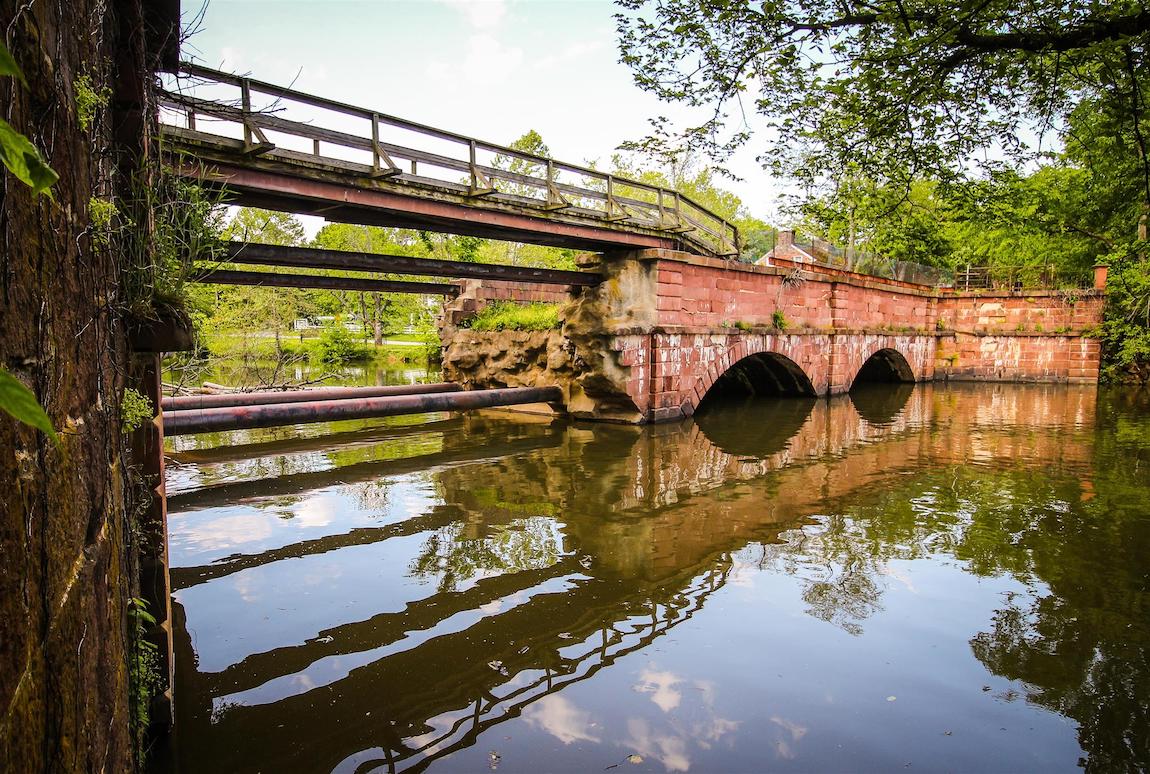
Chesapeake & Ohio Canal National Historical Park
Better known as the C&O Canal Towpath, this pathway parallels the Capital Crescent Trail coming out of D.C. Beginning a stone’s throw from the National Mall and the White House, the 184.5-mile trail that runs along the Potomac River to Cumberland, Maryland, brims with rich history (read about more historical connections along the Great American Rail-Trail here). George Washington used his Revolutionary War cred to successfully lobby for the creation of the precursor “Potowmack Canal Company,” which was ceded to the Chesapeake and Ohio Canal Company in the early 1820s. Their C&O Canal would become an important transportation line for a century, and hundreds of relics [and canal structures] still line the trail today. The trail offers a peaceful ride to Cumberland, Maryland, with hundreds of original features to see along the way, including canal locks, lock houses, aqueducts and their canal structures.
Route Reveal Celebration
Completing the Great American Rail-Trail: Catalyst Initiatives in Maryland
In every state along the preferred route of the Great American, needs for completing the trail vary. To spur trail completion, RTC has identified initial catalyst initiatives—projects or challenges that would most benefit from RTC’s national breadth of resources. (View the complete list of catalyst initiatives and criteria here.) Through these initiatives, RTC will support local and state partners, investing time, expertise and organizational resources in specific projects that are critical to the ultimate completion of the Great American Rail-Trail.
The C&O Canal
RTC will monitor and advocate for continued trail surface improvements along the historic corridor to ensure the highest-quality trail-user experience. In addition, RTC will pursue public funding for a comprehensive hydrology study of the C&O Canal Towpath to determine the status and condition of the 19th-century culverts beneath the canal that carry water through its substructure and into the Potomac River, including recommendations for costs to modernize the culvert system.
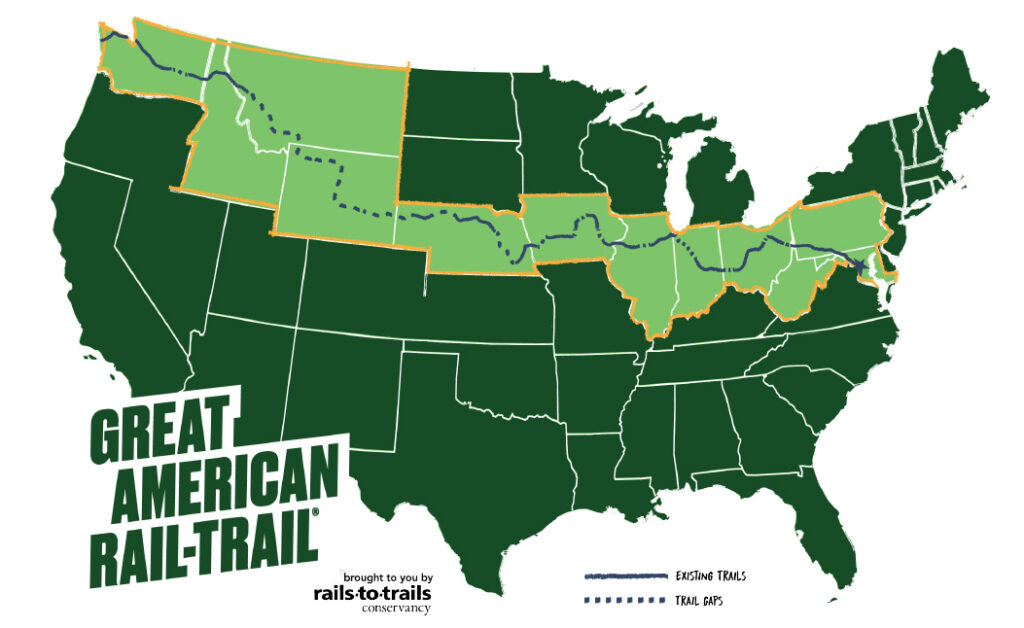
Great American Rail-Trail Preferred Route
